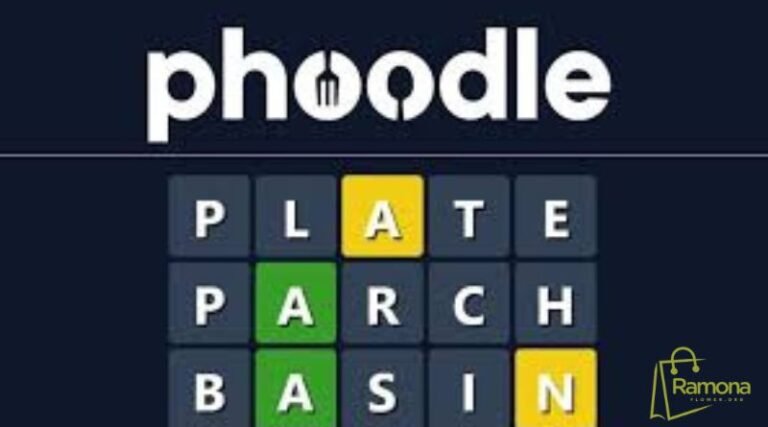Phoodle: The Foodie’s Word Game Phenomenon
In a world filled with digital distractions, Phoodle has risen as a delightful and engaging game for food enthusiasts. Launched as a spin on popular word puzzles, Phoodle combines the challenge of a daily word game with the thematic fun of culinary language. As it grows in popularity, it’s quickly becoming a staple for anyone passionate about food and cooking. In this guide, we’ll explore what makes Phoodle unique, how to play, strategies for success, and what this game reveals about the role of food in our lives.
What is Phoodle?
At its core, Phoodle is a daily word puzzle game inspired by Wordle, the game that took the internet by storm. However, Phoodle narrows its focus to the culinary world, with words related exclusively to food, ingredients, cooking methods, and kitchen tools. Developed by a team of word puzzle enthusiasts and food lovers, Phoodle was designed to appeal to a niche audience who appreciates both the intellectual challenge of word games and the sensory pleasures of food.
Players are given six chances to guess a five-letter word associated with food. Each time a player inputs a guess, they receive feedback in the form of colored tiles. A green tile means that a letter is in the correct spot, yellow indicates the letter is in the word but in the wrong spot, and gray means the letter is not in the word. This simple feedback mechanism helps guide players toward the correct answer without providing overt clues.
The Allure of Phoodle for Food Lovers
One of the reasons Phoodle has captivated such a broad audience is its culinary specificity. Unlike general word games, Phoodle challenges players to think within a limited vocabulary. This food-centered approach resonates with those who work in the culinary field, food bloggers, and home chefs who enjoy spending their free time immersed in all things food.
Moreover, Phoodle provides an educational twist; by playing, users are exposed to lesser-known food terms, culinary techniques, and unique ingredients. Each correct word guessed opens up an opportunity to learn something new, enriching players’ food knowledge and vocabulary simultaneously.
How to Play Phoodle: Step-by-Step
If you’re new to Phoodle, here’s a straightforward guide to get you started:
- Access the Game Platform: Phoodle is available as a web-based game, which can be accessed through any device with internet connectivity. Simply navigate to the official Phoodle website or app.
- Starting the Game: Each day, Phoodle offers a new five-letter word to guess. You’ll have six attempts to guess it correctly, similar to the format used in Wordle.
- Make Your Guesses: Type in a five-letter word related to food. Each time you make a guess, pay attention to the color feedback:
- Green tiles indicate correct letters in the correct position.
- Yellow tiles mean the letter is part of the word but in the wrong position.
- Gray tiles mean the letter is not in the word at all.
- Strategize: Based on the feedback, adjust your guesses to refine your word choice.
- Learn from Your Success or Failure: Whether you guess the word correctly or not, take note of the solution. Phoodle often provides additional information about the correct word, making it a fun and educational experience.
Tips and Strategies for Mastering Phoodle
Mastering Phoodle requires a mix of general word game skills and food-specific knowledge. Here are a few strategies to improve your chances of success:
- Start with Common Ingredients: Many Phoodle words are commonly used in kitchens worldwide. Words like “spice,” “fruit,” and “bread” can often serve as a good starting point.
- Utilize a Food Dictionary: If you’re serious about Phoodle, it might help to keep a culinary dictionary handy. This could introduce you to words you might not encounter otherwise.
- Experiment with Culinary Techniques: Many of the five-letter words in Phoodle could relate to cooking methods, like “grill” or “boil.” Thinking beyond ingredients can broaden your guessing pool.
- Follow Culinary Trends: Since the game is updated daily, Phoodle sometimes draws inspiration from current food trends. Knowing popular food items or buzzwords can help you stay ahead.
The Educational Benefits of Phoodle
Phoodle isn’t just a game; it’s an excellent learning tool for anyone interested in expanding their culinary lexicon. Playing Phoodle can familiarize you with terms you might not encounter regularly. This can be especially valuable for aspiring chefs, food writers, or even casual food lovers who want to deepen their culinary knowledge.
For instance, words like “umami,” “quail,” or “curds” might not be a part of everyone’s everyday vocabulary. Phoodle’s challenges gently push players to explore these words, fostering an appreciation for the diversity of the culinary world. It’s a game that blends fun with education, turning every correct answer into a small learning victory.
Community and Competition: The Social Aspect of Phoodle
Another exciting aspect of Phoodle is the community that has formed around it. Just like Wordle, Phoodle encourages users to share their results on social media, fostering a sense of competition and camaraderie. Platforms like Twitter, Instagram, and Facebook have become gathering spots for Phoodle players to share their success (or struggles) with the day’s word.
Daily discussions allow players to exchange tips, discuss food trends, and bond over shared interests. The game taps into the joy of both solitary play and community engagement, making it more than just a puzzle but a daily ritual for many.
Why Phoodle Matters: Food as Cultural Identity
Beyond its entertainment value, Phoodle subtly reinforces the importance of food in our lives. Food is more than sustenance; it’s a symbol of culture, tradition, and creativity. Through Phoodle, players are reminded of the diversity within culinary arts. The game’s creators have brilliantly captured how food can be a unifying theme that bridges cultural gaps, especially in a globally connected world.
As players interact with words that hail from various cuisines and cooking styles, Phoodle gently educates them on the variety that exists within culinary cultures. It’s a playful nod to how interconnected food and language are, and it helps foster appreciation for global culinary traditions.
The Future of Phoodle: Expanding the Culinary Challenge
As Phoodle gains more followers, there’s a growing demand for more features. Fans have expressed interest in options like weekly challenges, more diverse word lengths, and even multiplayer modes that would let users challenge friends. The creators have hinted at potential updates, but for now, they’re focused on keeping the game accessible and true to its simple yet addictive format.
Given its current success, it’s likely that Phoodle will continue to evolve, perhaps incorporating seasonal themes or regional specialties. The future holds endless possibilities for this food-centric puzzle, and its dedicated fanbase eagerly anticipates each new twist and update.
Conclusion: Embracing the Joy of Phoodle
Phoodle is more than just a game; it’s an intersection of language, food, and culture. By transforming food vocabulary into a daily puzzle, Phoodle provides a delightful escape that’s both mentally stimulating and creatively inspiring. Its appeal lies in its simplicity, yet it manages to offer something meaningful for food enthusiasts of all ages.
Whether you’re an amateur cook, a seasoned chef, or simply a lover of food, Phoodle invites you to play, learn, and connect through the universal language of food. So next time you’re looking for a fun and fulfilling way to pass the time, give Phoodle a try—you might just find yourself hooked.

